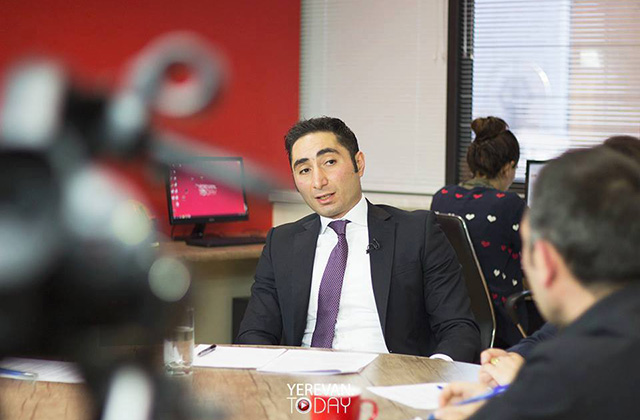The government’s measures tantamount to expropriation in the media industry

On 16 January 2020, the Prime Minister of Armenia has launched attack on television companies in Armenia labelling them as “the corruptioners’ TV networks”. He went further saying that those TV channels must use “corruption” logos when they broadcast. Interestingly, the Government also discussed the need for transparency in business, including in the media industry, especially in relation to ownership and tax requirements (ultimate beneficial ownership). Furthermore, the Chairman of the Competition Commission surprisingly declared that the abuse of dominant position is available in the media industry.
It is apparent that the various state institutions have conspired together to attempt to silence critical media voices which are the threats to the independence of the media sector. The Government’s intent is to make the press serve those in power rather than the public. It is apparent the Government has no an evidence-based policy at all which would enable to assess the risks and implement the reforms.
Apart from the threats to media freedom, the Government intends to undertake regulatory measures which would be tantamount to expropriation which represents the most serious infringement of private property rights. The authorities must realize that at its essence, an expropriation is the taking of private property by a government acting in its sovereign capacity. If the Government decides to expropriate those television companies, it has two options: “lawful” and “unlawful” expropriations.
A “lawful” expropriation must be, at a minimum, for a public purpose, non-discriminatory and accompanied by a prompt, adequate and effective compensation. The principles of Armenian legislation recognize a similar standard and generally include the further requirement that expropriation be conducted according to due process of law. However, if it is an “unlawful”, the Government would open a floodgate for claims in courts and international arbitrations where the standard of compensation would be different and extremely high.
It is important to note that the authorities have already taken measures in the medial industry which have risen to a substantial deprivation (indirect expropriation) by arresting the owner of TV 5, Armen Tavadyan.
It is to be noted that the Government is already facing expropriation cases in international arbitration which have a negative impact on the country’s investment environment. The Government has failed to provide the minimum standards of protection – Lydian and Sanitek are likely to bring their arbitration claims against Armenia.
Furthermore, if the Government decides to revoke the TV licenses, it may result in an interference with the rights under Article 1 of Protocol No. 1 of the European Convention of Human Rights which guarantees the right to property. Any such interference with the rights protected by Article 1 would fail to meet the requirement of lawfulness. It is the first and most important requirement and It must be compatible with the rule of law which includes freedom from arbitrariness. If there is an alleged violation, Armenia is required to compensate for expropriation. In addition, those TV companies can argue in the Strasbourg Court that there is a violation under Article 14 in conjunction with Article 1 of Protocol No. 1 i.e., the applicant has been denied all or part of a particular asset on a discriminatory ground and it was a politically-motivated deprivation under Article 18 of the Convention.
Concluding, the Government’s duty must be to ensure the sustainability of independent media in Armenia and ensure that its actions do not amount to a deprivation of property.
GPARTNERS LAW FIRM
Sargis Grigoryan, Partner

























